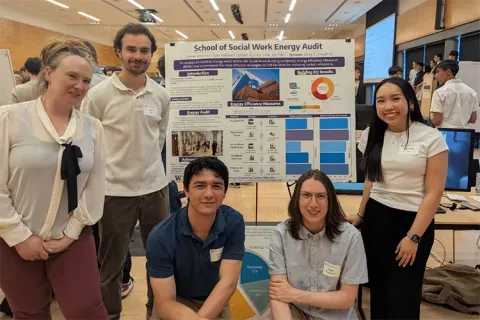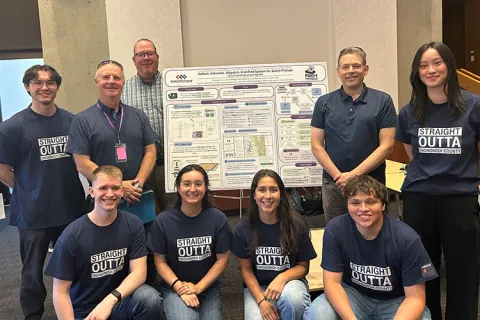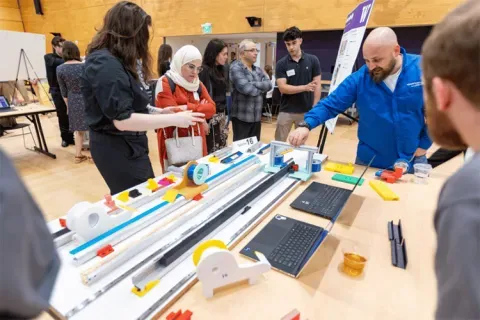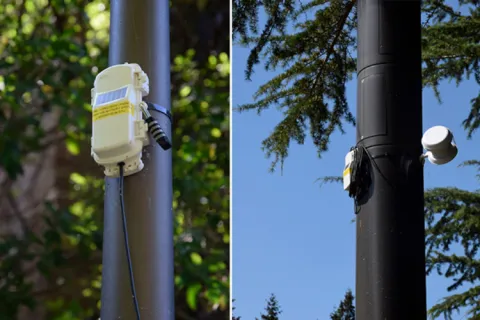Cyberworks Robotics
Autonomous Self-Driving Wheelchair
Autonomous Wheelchairs increase freedom and ease of mobility for the most vulnerable people in society. Large Scale Campus Wide autonomous navigation of a power wheelchair faces numerous corner case confounds ranging from loss of localization due to feature sparsity to human motion sickness. This student team worked to identify and address corner cases that allow for robust persistent navigation over vast indoor and outdoor regions within the UW campus and fleet integration to the cloud for remote monitoring, user authentication, and over-the-air updates. Low hardware cost is essential to the mass adoption of such technology. Therefore, this student team worked to focus on the use of inexpensive but cutting-edge technologies such as monocular Neural SLAM and Dense Optical FlowML Behavior Cloning as a means to reduce or eliminate reliance on expensive LiDAR-based visual SLAM. Project design parameters and performance this student team will work to incorporate include: - Identification of navigational confounds in a complex large scale indoor/outdoor environment - AWS Robomaker cloud connectivity, monitoring, authentication and software management - Point Cloud Obstacle Cluster Velocity Tracking - Graceful Motion based Navigation (U Michigan papers) The outcome this student team will work to accomplish is a graceful robust autonomous wheelchair navigation in large scale real world environments at an affordable price using the Cyberworks Autonomous Navigation Stack.
Faculty Adviser(s)
Kim Ingraham, Electrical & Computer Engineering
Related News

Mon, 10/13/2025 | UW Mechanical Engineering
Capstone collaboration leads to award
An ME capstone team received first place for its energy audit of the UW School of Social Work building.

Thu, 07/17/2025
UW engineering students develop smart ballot solution
UW engineering students develop smart technology solution to improve ballot collection for Snohomish County.

Mon, 07/07/2025 | UW Mechanical Engineering
Capstone creations
Students displayed innovative capstone design projects at the 2025 expo.

Fri, 09/20/2024 | UW Civil & Environmental Engineering
Smarter irrigation for a greener UW
A new project combines satellite data with ground sensors to conserve water and create a more sustainable campus environment.